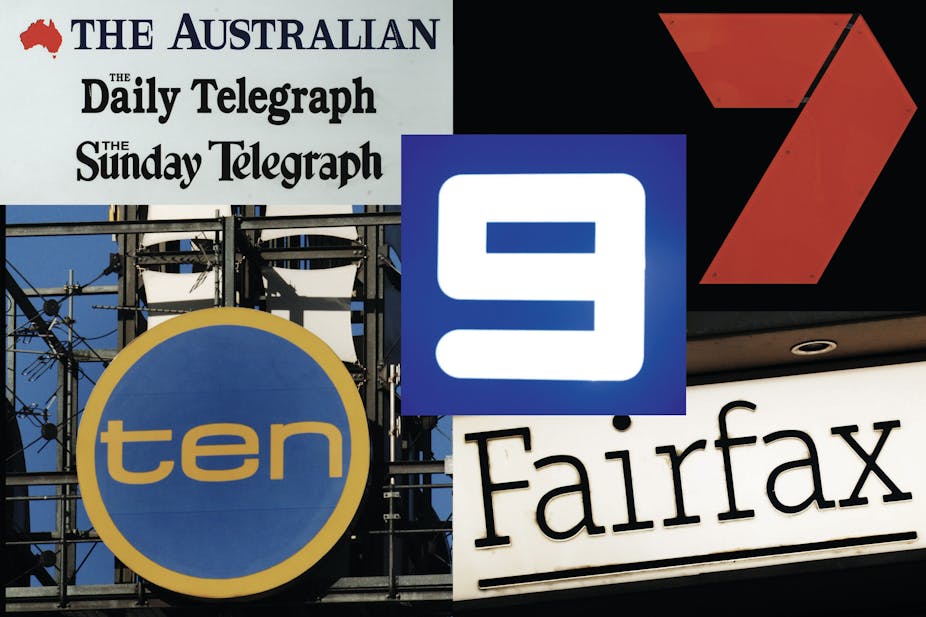A profound shift is underway in the global news media industries. As the extensive police investigation and judicial inquiry into the News of the World phone hacking scandal continue in the UK, News Corporation is under threat of a boardroom revolt in its New York HQ. Independent shareholders see a need for regime change to ward off serious brand damage.
But the bigger questions raised by this scandal centre on media accountability in the age of internetworking - where companies like News Corporation can further extend their influence across multiple platforms and global information networks.
In Australia, two inquiries are addressing these issues. One is the broad ranging Convergence Review and the Media Inquiry is looking primarily into news print media activities in this country. Both are grappling with the regulatory implications of evolving media industries.
Media and democracy
The stakes could not be higher. Democratic societies must shape the accountability of powerful media corporations that, in turn, hold the ability to determine the fate of political parties, and individuals.
To maintain a democracy we need to sustain credible news media, regardless of the publication platform. And for that we need regulatory frameworks that recognise the increasing influence of online media, and the long-term consequences of not taking appropriate corrective measures in cross-media ownership policy.
Our submissions to the Convergence Review have argued that the online dominance of established media groups means that the government should now be recalibrating the existing cross-media ownership rules.
Recent research by the ACMA, shows that consumption of news via apps, mobile devices, tablet computers and e readers is increasing. Access to online news content is now the second-highest media activity overall after watching broadcast television.
Tellingly, it also indicates that audiences expect accuracy, fairness and transparency in their news and current affairs, irrespective of the platform or device on which they access it.
This isn’t surprising given that the highest single category of complaints about news and information, across platforms, concerns fairness and accuracy.
Media in the UK
In the UK a flag was raised by the media regulator Ofcom when News Corporation bid to control 61% of British Sky Broadcasting (BSkyB) before the News of the World scandal. It was shaping up as a litmus test for ownership and cross media regulation. If approved News would have owned around 37% of the newspaper sector, and three of the top ten most trafficked news websites as well as 35% of the TV market.
Ofcom’s 2010 public “invitation to comment” noted the “need for sufficient media plurality in the functioning of a healthy and informed democratic society” and sought feedback about the impact of the acquisition on content types; audiences; media platforms; control of media enterprises; and developments in the media landscape.
Importantly Ofcom signaled it would “consider how future market developments, including the convergence of broadcast, print and internet media may affect consumers consumption of relevant media and the current levels of media plurality”.
The government minister in charge asked it to further investigate its idea of a test to assess: “how the proposed acquisition may affect the level of plurality of persons with control of the media enterprises serving the relevant audiences” across all platforms.
Ofcom has formed the view that “online news tends to extend the reach of established news providers as opposed to favouring the use of new outlets that are not already present on traditional media.”
Who owns what?
The Australian government should also be developing a test capable of taking into account concentration and convergence across all platforms. This test needs to examine the influence of online news delivered over broadband networks.
It won’t be without challenges. The production of online media, including mobile and tablet devices, is complexly interconnected with old analogue media, and ownership consolidation.
News media are evolving through a fluid interplay of business restructuring, content sharing and audience interactivity.
This means policy discussions about media influence cannot be reduced to glib slogans about “maximising choice” in user access to diverse content. They need to be empirically assessed, recognising that the way we consume news is in transition.
Advertising media
Although there is an ongoing global debate about the most effective way of measuring the online audience, the Interactive Advertising Bureau (IAB) here and overseas has accepted the Nielsen Online Ratings standard. There is arguably sufficient agreement to support a rapidly emerging online advertising industry.
So the government must engage the major parties to these debates - including the measurement companies like the IAB, the Circulations Audit Board and Audit Bureau of Circulations – to determine and adopt standards that are appropriate and effective in the Australian context.
Influential media
If the government doesn’t broaden the scope of the existing cross-media rules to apply to major online news it will be neglecting its duty to make public policy.
Given Australians’ increasing use of web and mobile news sites, these should be included in the existing “influential” media platforms of television, radio and hard copy newspapers.
The decision as to which online news sites to include should be made on the basis of a specified threshold of traffic to popular sites. An independent body should disallow media mergers that are found to be against the public interest on concentration of ownership (influence) criteria.
A transforming market
The emergence of apps culture and the expansion of social media, alongside the extension of mobile media services show the scale of the transformation taking place.
Yet the sources of news draw from a surprisingly limited pool with much content recycling and re-circulation.
Australia’s media market is even more concentrated than the UK’s, and yet the government there has begun a serious process of updating its regulation in the public interest.
Our government needs to catch up and develop a test on media convergence and concentration that includes all platforms including the internet. Without a robust, accountable media, there is no democracy.

